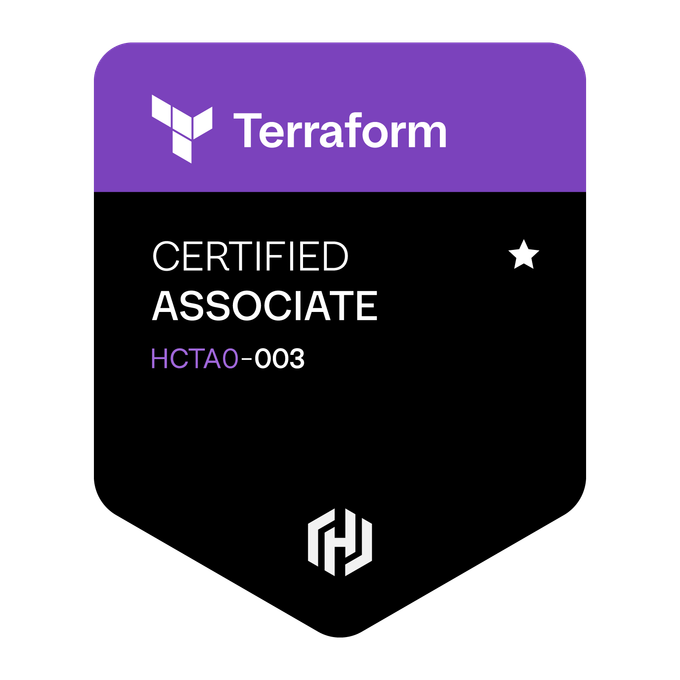HashiCorp Certified: Terraform Associate (003) Exam Experience

Since joining
As someone who’s been using Terraform for a while, I was reasonably confident I could pass, but I’ll admit I went slightly over the top on the preparation. There’s something abouta DA representing the company that makes the idea of failing an internal certification feel…awkward. So I spent a few weeks digging deep into every objective, revisiting fundamentals, and labbing out scenarios that were well beyond the exam scope.
Exam Day
The check-in process was quick and relatively painless. You get through what is a pretty standard remote-proctored setup these days: ID verification, room scan (“what’s under your desk sir?”), and you’re off. The exam interface was straightforward and responsive — until my camera froze halfway through. No idea why that happened, but the proctor quite rightly froze my exam and asked me to get it working again. That required restarting the browser and logging back in. If I hadn’t been more than halfway through the questions at that point, I may have panicked a bit…
Despite the interruption, I completed all the questions in around 14 minutes - this says a lot about the quality of the questions, which are easy to read, understand and answer - there are no “gotchas”.
Exam Quality
The Terraform Associate exam is designed as an entry-level certification, and it hits that balance really well. The questions are practical and focused on core Terraform concepts: the workflow, the CLI, basic HCL syntax, and understanding how Terraform fits into the infrastructure lifecycle.
There were no trick questions or ambiguous wording; it’s a fair test of the fundamentals. If you’ve spent any time using Terraform to build or manage real infrastructure, you’ll likely find the exam straightforward — but still a nice validation of your knowledge.
I genuinely enjoyed the experience — it was refreshing to take a certification that felt aligned with how people actually use the tool day-to-day.
What’s Covered (and What’s Not)
The exam objectives are clearly laid out on the
- The Terraform workflow — from
inittoapplyanddestroy - Core concepts — providers, state, and the purpose of modules
- Terraform Cloud and Enterprise basics — workspaces, remote backends, and version control integration
- HCL fundamentals — variables, outputs, and simple resource definitions
- Best practices — how and when to use
terraform fmt,validate, andplan
The exam doesn’t go deep into complex module composition, custom providers, or advanced multi-cloud patterns — and it shouldn’t. It’s a certification that ensures you understand the why and how of Terraform before diving into large-scale automation or infrastructure design.
Study Resources
I worked through the Udemy course by Bryan Krausen and Gabe Maentz —
Why Certification Matters
I’ve always been a strong advocate for certification — not as (well, not only as) a badge-collecting exercise, but as a structured way to focus my learning. Setting a certification goal gives me direction and motivation, especially in a field as broad and fast-moving as cloud infrastructure.
The Terraform Associate exam is aimed at those starting out with Terraform, and that’s exactly why it’s such a valuable entry point. It gives you a solid foundation to build from — understanding the workflow, the language, and the principles that underpin Infrastructure as Code.
For those early in their careers, it’s a great way to stand out and show commitment to learning. For those further along, it’s more about reflection and confidence — confirming what you know, identifying any gaps, and reinforcing good practices.
Ultimately, for me, certification is as much about confidence as capability. It’s a way to measure progress in a field that never stops evolving — and, in the case of the Terraform Associate exam, it was an enjoyable and worthwhile milestone on that journey.

 Written by
Written by